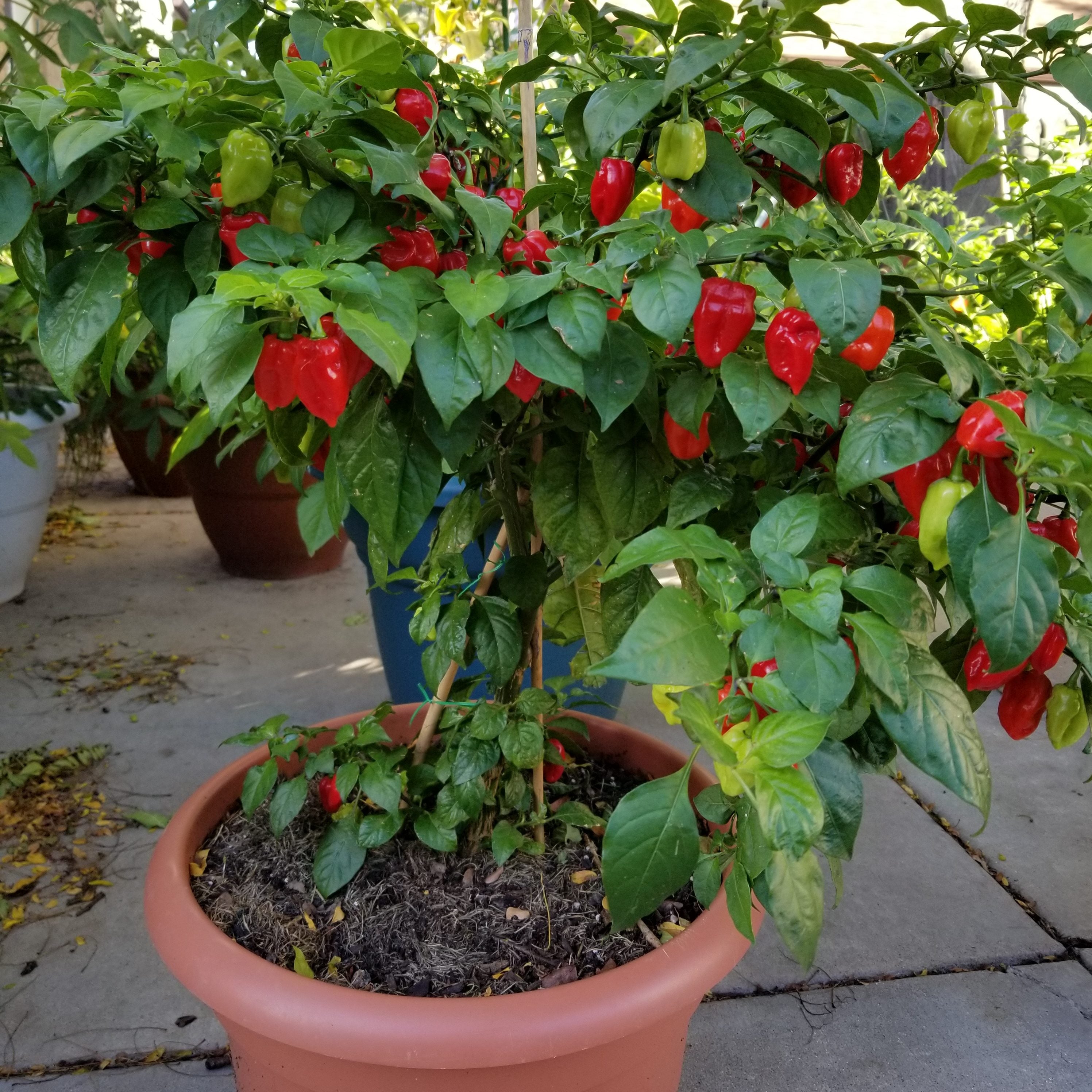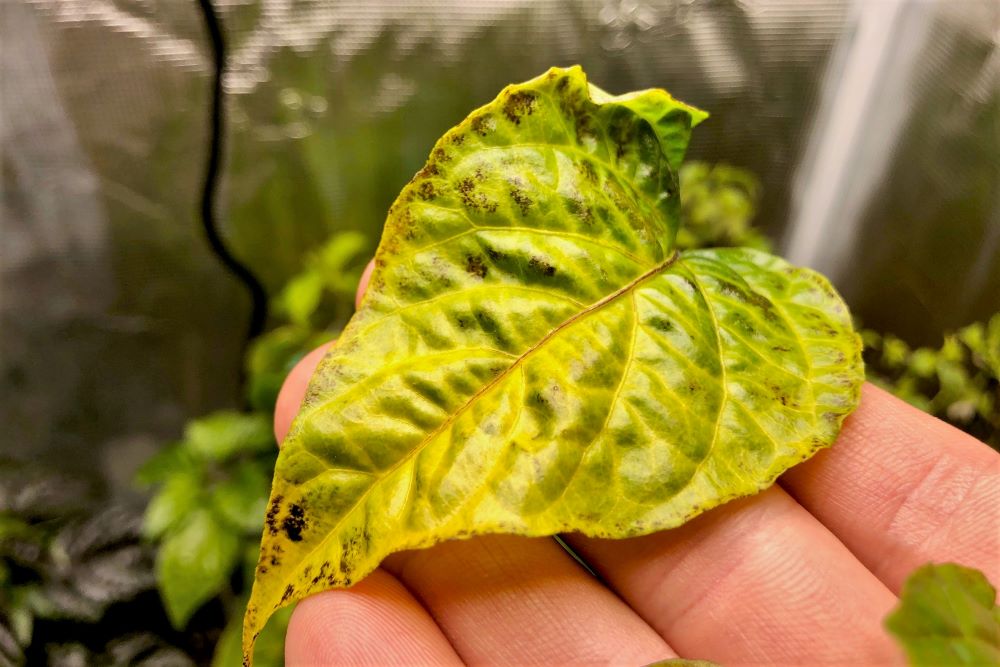Choosing the Best Fertilizers for Peppers: Specialist Recommendations
Choosing the Best Fertilizers for Peppers: Specialist Recommendations
Blog Article
Organic Vs. Synthetic Fertilizers: Which Is Best for Supporting Healthy And Balanced Pepper Plants?
In the world of supporting healthy pepper plants, the choice between organic and synthetic plant foods stands as a critical choice with far-ranging implications. While both alternatives goal to provide vital nutrients to sustain plant development, the nuances of their effect on the dirt, plant wellness, and the atmosphere spark a discussion that echoes throughout the gardening community. Recognizing the distinct advantages and potential mistakes of each fertilizer kind is crucial for pepper growers looking for to enhance their yields while maintaining a lasting and eco-conscious strategy.
Advantages of Organic Plant Foods
Organic fertilizers supply an environmentally-friendly and lasting method to beneficial pepper plants, supplying necessary nutrients without making use of artificial chemicals. These natural fertilizers are obtained from natural sources such as compost, manure, bone dish, and algae, advertising dirt health and biodiversity. Unlike artificial fertilizers, organic alternatives release nutrients slowly, ensuring a constant and balanced supply for pepper plants to prosper.
One considerable advantage of organic plant foods is their ability to boost soil framework and water retention. By enhancing dirt health and wellness, natural fertilizers promote helpful microbial activity, which assists in nutrient uptake by pepper plants. Furthermore, natural fertilizers decrease the danger of chemical run-off, safeguarding water sources from pollution and guarding the atmosphere.
In addition, natural fertilizers add to lasting dirt fertility by advertising the development of advantageous dirt microorganisms. These organisms help break down natural matter, launching nutrients in a kind that is quickly obtainable to pepper plants. best fertilizers for peppers. By promoting a healthy soil ecological community, organic fertilizers support lasting pepper growing methods that profit both plants and the atmosphere
Drawbacks of Artificial Plant Foods
Artificial fertilizers, in comparison to their organic equivalents, present various drawbacks when utilized to nourish pepper plants, impacting both plant health and ecological sustainability. One major disadvantage of artificial plant foods is their tendency to seep nutrients from the soil promptly.
Moreover, the overuse of artificial plant foods can add to water pollution. Excess plant foods not absorbed by plants can remove right into water bodies, leading to eutrophication, where algae flowers diminish oxygen degrees in the water, hurting marine life. Synthetic fertilizers are commonly acquired from non-renewable sources, such as fossil gas, contributing to carbon discharges and environmental degradation throughout their manufacturing.
Nutrient Absorption Comparison
Reliable nutrient absorption plays an essential role in the overall health and development of pepper plants. When contrasting organic and artificial plant foods in terms of nutrient absorption, natural fertilizers have the benefit of offering a much more balanced and slow-release source of nutrients (best fertilizers for peppers). Organic plant foods have a range of macro and trace elements that are not only helpful for the plants yet additionally promote healthy soil microbial activity, which aids in nutrient uptake. On the other hand, artificial plant foods commonly provide a fast release of nutrients, which can cause leaching and runoff, leading to reduced nutrient absorption prices by the plants.
Additionally, natural plant foods enhance dirt framework and water retention ability, permitting pepper plants to access nutrients a lot more successfully. This enhanced dirt quality promotes origin development, making it possible for better nutrient absorption. Artificial plant foods, although at first enhancing plant growth because of their high nutrient concentrations, might hinder long-lasting nutrient absorption by derogatory soil health with time.
Environmental Influence Considerations

On the various other hand, synthetic fertilizers, although typically even more immediately readily available and focused to plants, can have destructive results on the environment if not applied appropriately (best fertilizers for peppers). Their production calls for high power inputs, leading check over here to greenhouse gas discharges and contributing to environment change. The runoff of excess artificial fertilizers can infect water sources, leading to eutrophication and hurting marine environments.
Ideal Plant Food Practices for Peppers
To attain this, it is important to follow ideal plant food methods tailored to the particular requirements of pepper plants. One essential method is to do a soil examination prior to applying any type of fertilizers.
One more important technique is to fertilize pepper plants at the ideal time. Usually, peppers benefit from getting fertilizer at planting and afterwards once again when they begin to flower. Over-fertilizing can result in nutrient inequalities and damage the plants, so it is crucial to follow advised application prices.
In addition, picking a balanced plant why not try these out food with an NPK proportion that fits pepper plants' demands is essential. Inevitably, incorporating organic and artificial plant foods carefully can help support healthy and balanced pepper plants while reducing environmental impact.
Verdict

Organic plant foods supply a lasting and environmentally-friendly approach to beneficial pepper plants, supplying vital nutrients without the usage of synthetic chemicals. Unlike artificial fertilizers, organic choices release nutrients slowly, making certain a stable and well balanced supply for pepper plants to flourish.
Synthetic fertilizers, in contrast to their organic equivalents, position numerous downsides when used to nurture pepper plants, affecting both plant health and environmental sustainability. When contrasting artificial and organic plant foods in terms of nutrient absorption, organic plant foods have the benefit of providing a more well balanced and slow-release source of nutrients.In addition, natural fertilizers boost soil framework and water retention capacity, allowing pepper plants to accessibility nutrients much more effectively.
Report this page